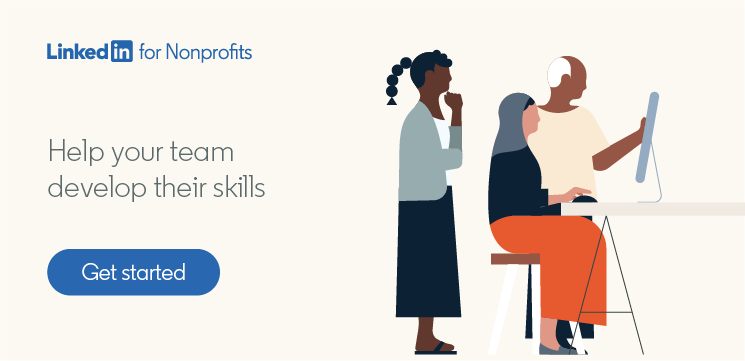
4 Meaningful Ways Nonprofits Can Celebrate Black History Month
Though some other countries observe it in October, in the U.S. and Canada, February is recognized as Black History Month. As a nonprofit, this month may hold special significance to you and your team, especially if your organization exists to support the Black community or continue the fight for social justice and equity. But regardless of your mission, Black History Month is an opportunity to uplift marginalized voices, deepen your knowledge, and champion diversity.
While celebrations are already underway, there’s still time to plan activities for your team. Here are a few ideas to help you recognize Black History Month in a thoughtful and meaningful way.
1. Host a talk from an expert
Inviting Black authors, activists, historians, or other experts to talk to your team is a great way to engage employees and inspire insightful conversation. If the speaker has a connection to your organization’s mission or cause, you could even consider opening the talk up to your supporters, too. Platforms like LinkedIn Events allow you to host professional virtual events in an environment that’s familiar to your audience, but if you’re keeping it within your team, you could also simply hold it over your usual video conferencing platform.
If you haven’t organized a talk yet, it’s not too late. After all, one benefit of virtual events is that they’re somewhat easier to schedule than in-person ones—you don’t need to worry about booking travel or panicking if a speaker’s train is delayed. As you start thinking about the right speaker for your organization, this list of authors curated by Penguin Random House is a good place to start.
2. Establish a book club
Book clubs are a great way to encourage people to reflect on key issues. Choose a book by a Black author that relates to Black History Month in one way or another (bonus points if it also has a connection to your cause) and encourage the whole team to read it. To make this easier for people, you could even give them a voucher for an eBook or audiobook.
While book clubs can be fun and interesting, they also involve a greater time commitment than some of the other activities on this list. As with most activities, it’s often best to make it optional. You could also create a dedicated Slack channel or other discussion thread to allow for an ongoing conversation, making it easier for people to read at their own pace and share their thoughts when they’re ready.
3. Watch a documentary together
In the era of social distancing, many streaming platforms have added watch party features that allow people in different locations to easily sync up their streams. This creates an opportunity for your team to watch a documentary related to Black history and culture together, even while you’re apart.
This list from PBS is a good place to start, but there are many other options available to you. After the virtual screening, you could discuss what you learned in your next all-hands meeting, giving the team some time to process and reflect on the information in between.
4. Explore digital resources
If you’re not sure where to begin when it comes to planning an activity, there are many existing events that your team can take part in, too.
For example, the Association for the Study of African American Life and History (ASALH) is celebrating with a month-long festival that includes a number of free events to be hosted on the Association’s YouTube channel. If you’re based in the UK, this website lists Black History Month events taking place across various regions. You can also explore whether your local library, university, or other institutions are hosting any events, then share these invites with the team,
More than just a month
These ideas are just a starting point, and you may already have your own activities in mind. But however you choose to recognize Black History Month, it’s also important to think about ways you can support your Black employees and the Black community after February is over. From simple steps like committing to source more supplies from Black-owned businesses in your area to long-term initiatives that promote diversity, inclusion, and belonging (DIBs), it’s how you walk the walk throughout the rest of the year that will determine how meaningful your organization’s actions are in February.
If you need help strengthening your nonprofit’s DIBs initiatives, there are a wealth of expert-led courses on LinkedIn Learning that can help, including curated Learning Paths like Diversity, Inclusion, and Belonging for All. To learn more about LinkedIn Learning, speak to one of our nonprofit specialists.

